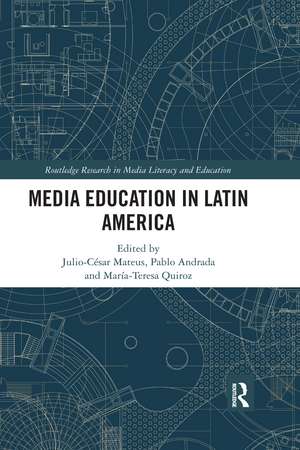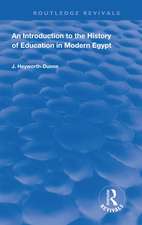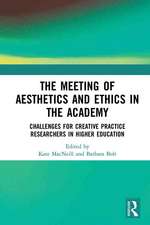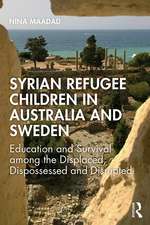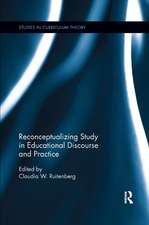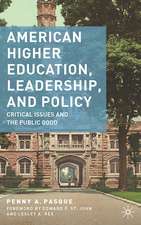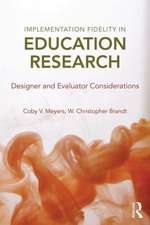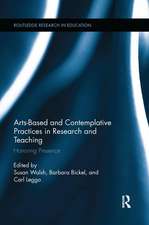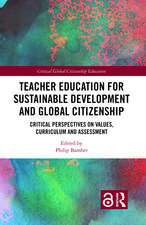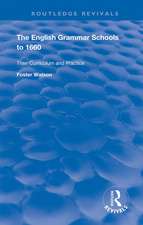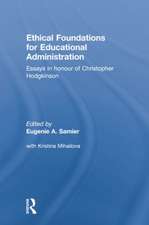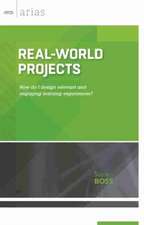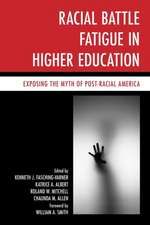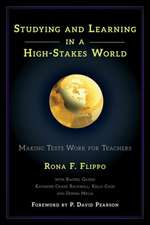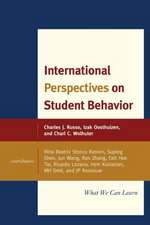Media Education in Latin America: Routledge Research in Media Literacy and Education
Editat de Julio-César Mateus, Pablo Andrada, Maria Teresa Quirozen Limba Engleză Paperback – 30 sep 2021
| Toate formatele și edițiile | Preț | Express |
|---|---|---|
| Paperback (1) | 374.21 lei 6-8 săpt. | |
| Taylor & Francis – 30 sep 2021 | 374.21 lei 6-8 săpt. | |
| Hardback (1) | 1003.89 lei 6-8 săpt. | |
| Taylor & Francis – 26 iul 2019 | 1003.89 lei 6-8 săpt. |
Preț: 374.21 lei
Nou
Puncte Express: 561
Preț estimativ în valută:
71.60€ • 74.76$ • 59.26£
71.60€ • 74.76$ • 59.26£
Carte tipărită la comandă
Livrare economică 04-18 aprilie
Preluare comenzi: 021 569.72.76
Specificații
ISBN-13: 9781032177670
ISBN-10: 1032177675
Pagini: 304
Ilustrații: 2 Illustrations, black and white
Dimensiuni: 152 x 229 x 16 mm
Greutate: 0.41 kg
Ediția:1
Editura: Taylor & Francis
Colecția Routledge
Seria Routledge Research in Media Literacy and Education
Locul publicării:Oxford, United Kingdom
ISBN-10: 1032177675
Pagini: 304
Ilustrații: 2 Illustrations, black and white
Dimensiuni: 152 x 229 x 16 mm
Greutate: 0.41 kg
Ediția:1
Editura: Taylor & Francis
Colecția Routledge
Seria Routledge Research in Media Literacy and Education
Locul publicării:Oxford, United Kingdom
Public țintă
Postgraduate and UndergraduateCuprins
Chapter One: The State of Media Education in Latin America Part I: National Chapters Chapter Two: Media Education in Argentina. Balance and Perspectives of a Field Under Construction Chapter Three: Media Education In Bolivia. Some Advances and The Need for Comprehensive Proposals Chapter Four: Media Education in Brazil. Dilemmas, Limits and Possibilities Chapter Five: Media Education in Chile. A Digital Leap That Abandoned the Study of Media Chapter Six: Media Education in Colombia. An Inheritance with Possibilities and Challenges for the 21st Century Chapter Seven: Media Education In Ecuador. Exploration and Description of a Latent Need Chapter Eight: Media Education In El Salvador. Slow-Paced Footsteps on The Way to Media Literacy Chapter Nine: Media Education in Mexico. For the Formation of a Critic Citizenship Chapter Ten: Media Education in Peru. A Field Full of Opportunities Chapter Eleven: Media Education in Uruguay. Between A Narrow Digital Gap and The Persistence of An Educational Gap Chapter Twelve: Media Education in Venezuela. From Frenzy to Contradictions Part II: Critical Essays Chapter Thirteen: Educommunication Landmarks in Latin America: What Should Be Considered in The Last 50 Years Chapter Fourteen: Towards A New Literacy Concept Chapter Fifteen: Constructivist TV Reception in The Children’s Classroom Chapter Sixteen: Media Literacy in Contemporary Learning-Based Societies: Challenges for New Ways of Education Chapter Seventeen: Critical Revision of The Critical Sense Chapter Eighteen: Transmedia Literacy and Participatory Cultures. A Research Agenda Chapter Nineteen: Tan Lejos Pero Tan Cerca. The Missing Link Between Media Literacy and Educomunicación
Notă biografică
Julio-César Mateus is a Ph.D. candidate in Communiction and researcher of Medium Research Group at the Pompeu Fabra University (UPF) in Barcelona, Spain. He is a tenured Professor at the University of Lima and guest lecturer in other universities of Peru, Spain and Ecuador. He has been secretary executive of Latin American Federation of Faculties of Social Communication (FELAFACS). His doctoral thesis explores media education in initial teacher training in Peru. His articles have been published in journals such as Culture & Education, New Approaches in Educational Research, The Journal of Media Literacy, International Journal of Educational Technology in Higher Education, among others.
Pablo Andrada, Ph.D., is a scholar of the National Commission of Science and Technology of Chile, Conicyt, and researcher and member of the MEDIUM research group at the UPF, developing his doctoral thesis on media education in teacher training in early childhood in Chile. He is also co-investigator on the project Map of film studies in Chile (2005-2015) and Radiography to the audiovisual references of Chilean adolescents, both funded by the Ministry of Culture of Chile.
María -Teresa Quiroz is a professor at the University of Lima, former dean of the Communication School and Director of the Institute of Scientific Research. She has been President of the Latin American Federation of Faculties of Social Communication (FELAFACS), the Peruvian Association of Communication Faculties and the Ethics Tribunal of the Peruvian Press Council. Author of many books and articles in the field, among them, Todas las voces: comunicación y educación en el Perú, Jóvenes e internet: entre el pensar y el sentir and La edad de la pantalla.
Pablo Andrada, Ph.D., is a scholar of the National Commission of Science and Technology of Chile, Conicyt, and researcher and member of the MEDIUM research group at the UPF, developing his doctoral thesis on media education in teacher training in early childhood in Chile. He is also co-investigator on the project Map of film studies in Chile (2005-2015) and Radiography to the audiovisual references of Chilean adolescents, both funded by the Ministry of Culture of Chile.
María -Teresa Quiroz is a professor at the University of Lima, former dean of the Communication School and Director of the Institute of Scientific Research. She has been President of the Latin American Federation of Faculties of Social Communication (FELAFACS), the Peruvian Association of Communication Faculties and the Ethics Tribunal of the Peruvian Press Council. Author of many books and articles in the field, among them, Todas las voces: comunicación y educación en el Perú, Jóvenes e internet: entre el pensar y el sentir and La edad de la pantalla.
Descriere
This book offers a systematic study of media education in Latin America. As spending on technological infrastructure in the region increases exponentially for educational purposes, this book makes a timely contribution to new debates surrounding the significance of media literacy as a citizen’s right.
